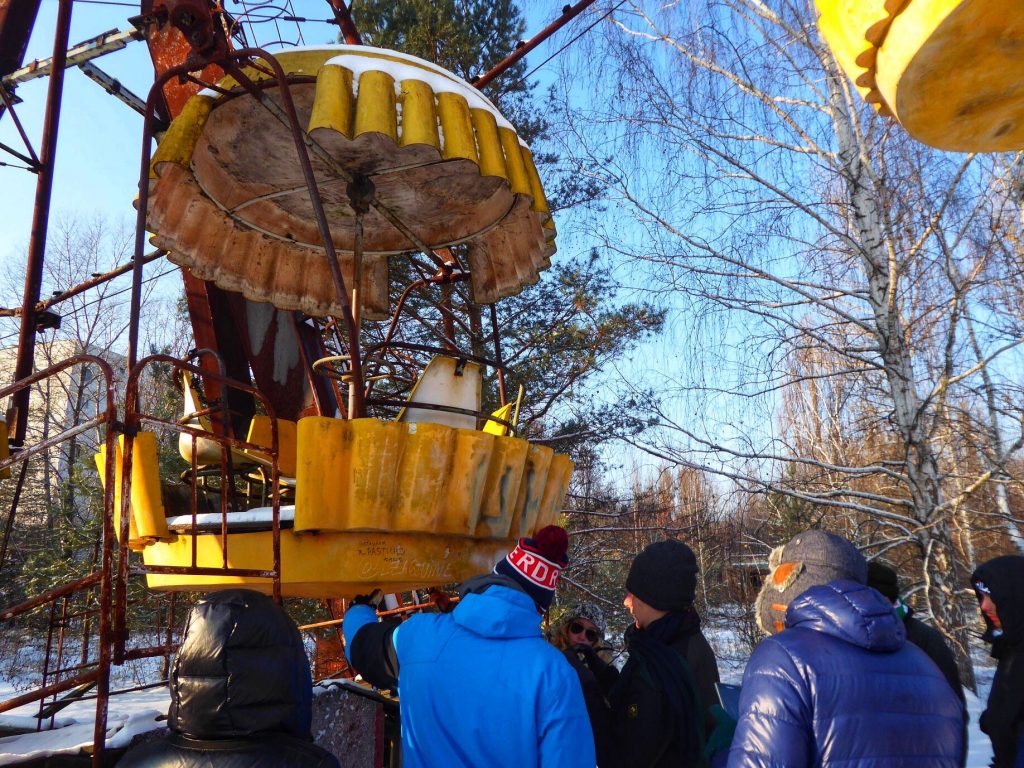Visitor numbers have risen by 40 percent, but some tourists are being criticised for being disrespectful.
An explosion at the Chernobyl nuclear power plant in 1986 lead to a deadly radioactive cloud spreading over Europe. The World Health Organisation estimates that 4,000 people died as a result of it, many from diseases such as cancer. Now a new television series, Chernobyl, has sparked increased interest in the site. Tour operators say it’s contributed to a 40 percent rise in the number of people visiting the Chernobyl Exclusion Zone, which has been open to tourists since 2011 but is still considered too radioactive for people to live there permanently.
This tourism brings benefits to Ukraine, where Chernobyl is located. It provides locals with jobs and brings money into the economy. That’s particularly important for a country like Ukraine, whose GDP growth (definition here) has been held back by its current spat with Russia. But some people say many of the tourists to Chernobyl are being disrespectful, by treating a disaster site as a fun holiday experience. They’re particularly mad about selfies of people smiling and posing.
Respect and commemoration are deeply-held human values that shouldn’t be dismissed. But not everyone agrees that naming and shaming people on the internet for breaking a cultural taboo is acceptable, as it can cause the people in question great distress. And many locals, some of whom were directly impacted by the Chernobyl disaster, care more about how tourist dollars could fund improvements to their area and lives than whether visitors are taking inappropriate photos.
Visiting ‘dark’ tourist sites can have an educational benefit - Chernobyl has to be visited as part of a guided tour, so people are learning about it inbetween the selfie-taking. Some of them might even be moved to donate to causes supporting those affected, or get involved in attempts to prevent something similar happening again.
Read our explainer on: cultural values.


